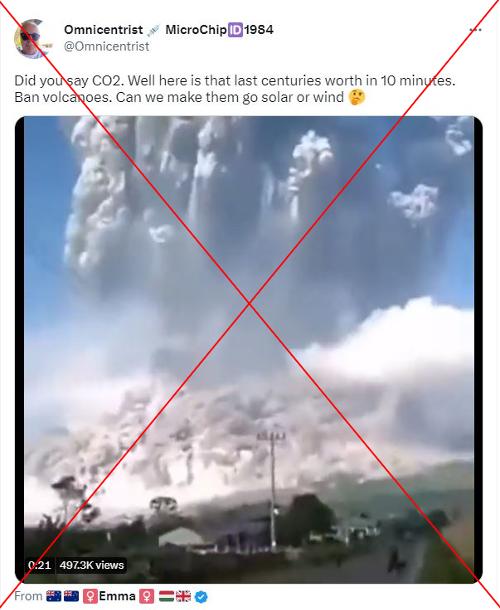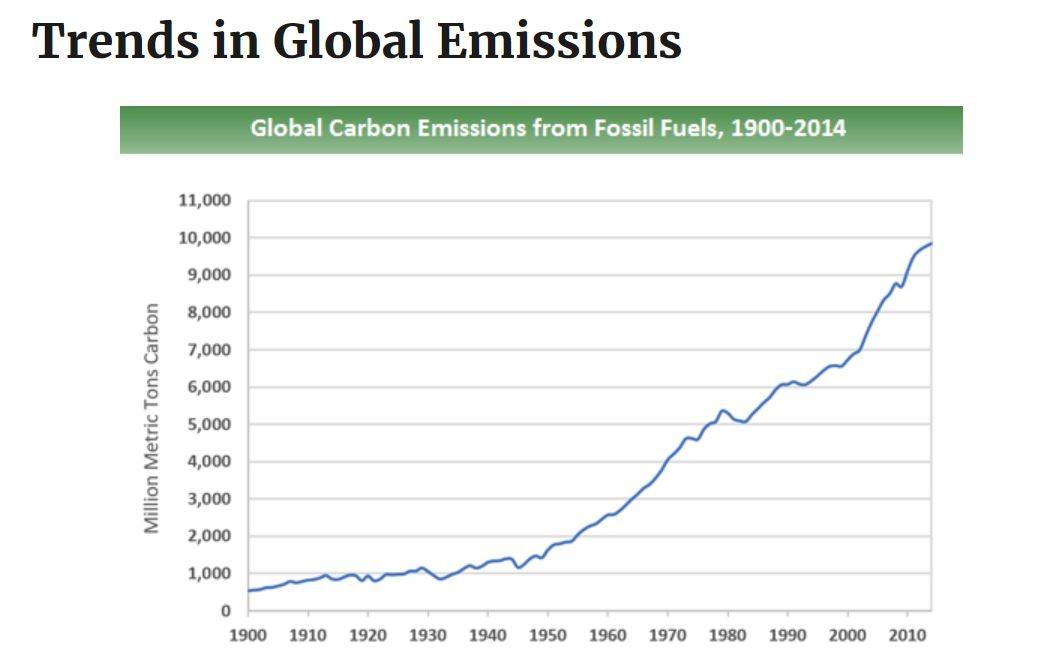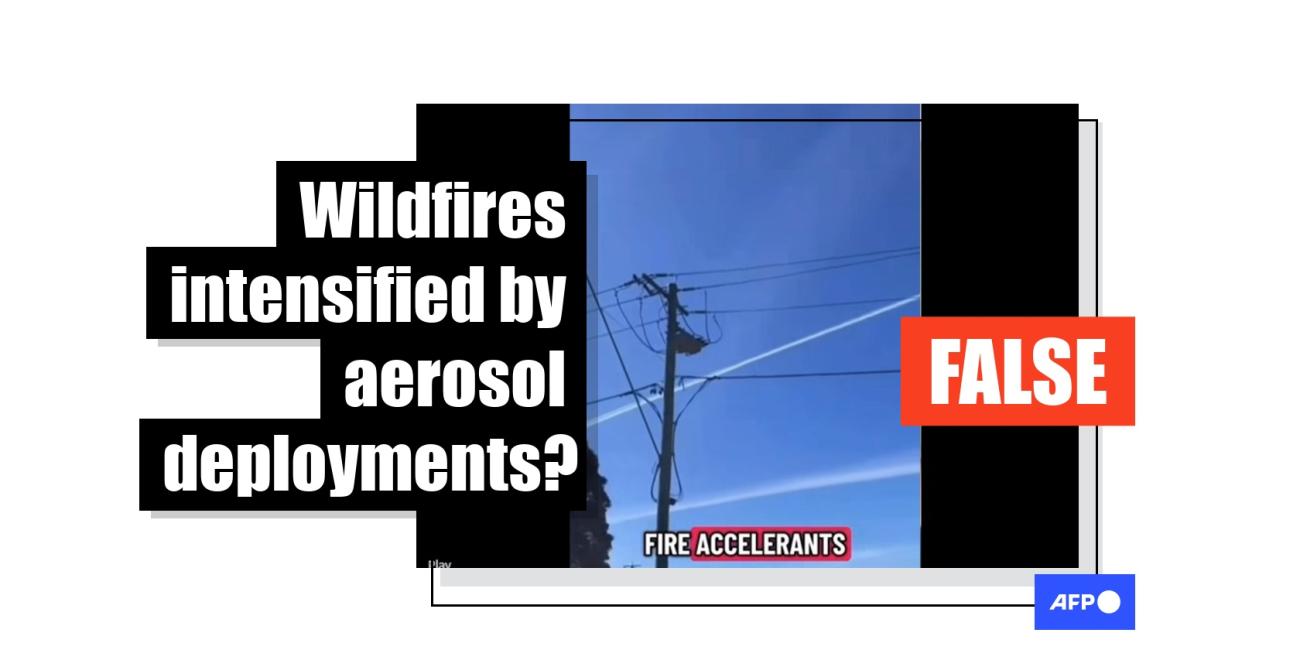
Volcano carbon footprint overstated in social media posts
- This article is more than two years old.
- Published on March 22, 2023 at 14:57
- 3 min read
- By Manon JACOB, AFP USA
"Did you say CO2. Well here is that last centuries worth in 10 minutes. Ban volcanoes. Can we make them go solar or wind," a March 12, 2023 tweet says, sharing a video of a massive volcanic eruption.
Additional posts claimed the video in the tweet showed Indonesia's Mount Merapi, one of the most active volcanoes in the world. It erupted on March 11 and then again a week later.

Similar claims about the impact of CO2 released by volcanoes have been circulating on social media for years.
Volcanoes can impact climate change, according to the United States Geological Survey (USGS), but comparing the emissions from volcanic activity to the much larger volume produced by human activities is scientifically inaccurate.
"Anything that emits CO2 -- or methane or many other greenhouse gases -- can contribute to global warming," Jacob Lowenstern, Director of the USGS-USAID Volcano Disaster Assistance Program, told AFP on March 16. But "even large volcanic eruptions have CO2 emissions that are dwarfed by human industrial activities."
An article (archived here) on NASA's website says: "Human activities emit a Mount St. Helens-sized eruption of CO2 every 2.5 hours and a Mount Pinatubo-sized eruption of CO2 twice daily."
Mount St. Helens, in the US state of Washington, and Mount Pinatubo, in the Philippines, produced the largest volcanic eruptions in the past 100 years.
Ed Venzke, a senior data researcher at the Global Volcanism Program for the Smithsonian National Museum of Natural History, called the claim about Mount Nerapi "completely false."
In a March 17 email, he said the recent volcanic activities at Mount Merapi were impressive but not unusual.
Volcanic emissions and other "magmatically active regions" release an estimated 280 to 360 million tons of carbon per year, according to research -- archived here -- by a team of scientists for the Deep Carbon Observatory.
In contrast, human-led activities produced 36.3 billion tons of carbon dioxide in 2021 alone, according to the International Energy Agency.
Global carbon emissions from fossil fuels have significantly increased since 1900, as seen in the graphic below from the US Environmental Protection Agency.

Volcanologist and research scientist, Stephen Self told AFP on March 16: "The present rise in concentration is so sharp and so tied -- timewise -- to anthropogenic (human) actions over the past 100 years, that it must be our CO2 releases that have caused it (and global warming), not the natural outputs from Earth, including volcanic gases."
Eruptions can also sometimes cool the planet.
"During big eruptions, sulfur dioxide ends up in the stratosphere and forms sulfuric acid aerosol particles that can reflect solar radiation back into space," USGS's Lowenstern said.
This was measured in 1991, with Mount Pinatubo in the Philippines. The eruption is considered to have offset global warming by 0.5 to 1 degree Celsius for two years, according to Self.
Video's origin
The video in the tweet is not from 2023. AFP found a tweet from February 19, 2018 (archived here) that credits the clip to Sutopo Purwo Nugroho, the former head of the information data center of Indonesia's National Disaster Management Agency (BNPB), who died in 2019.
Dahsyatnya letusan Gn Sinabung, tinggi kolom hingga 5 Km disertai luncuran awan panas hingga 4,9 Km. Suara bergemuruh, baru kali ini letusan disertai suara gemuruh sejak 2014-2018. Tdk ada korban jiwa, semua penduduk di zona merah sudah lama diungsikan. via @Sutopo_PNpic.twitter.com/qH3nDU6m7E
— Radio Elshinta (@RadioElshinta) February 19, 2018
The tweet says the video is of Mount Sinabung, another Indonesian volcano, that erupted that same day in 2018, on Sumatra Island.
AFP has fact-checked other environmental claims here.
Copyright © AFP 2017-2026. Any commercial use of this content requires a subscription. Click here to find out more.
Is there content that you would like AFP to fact-check? Get in touch.
Contact us




